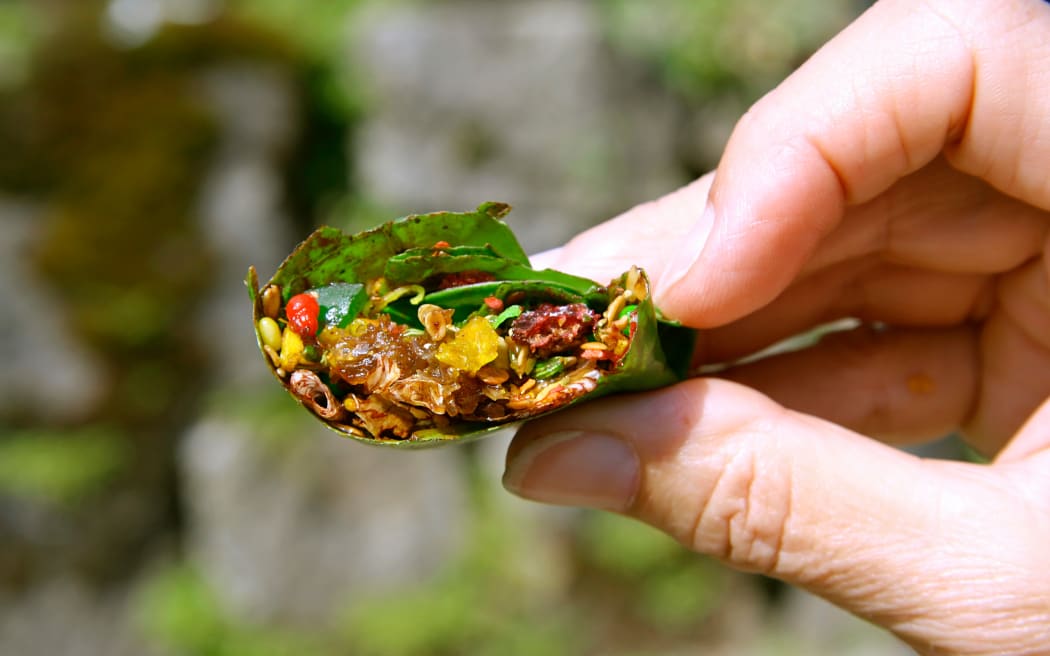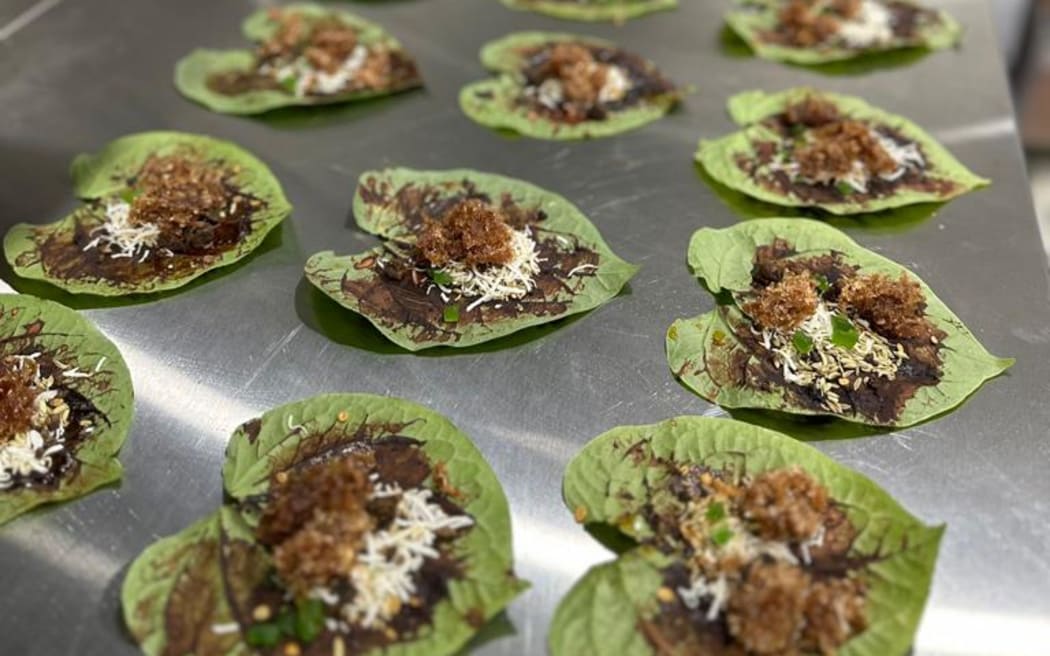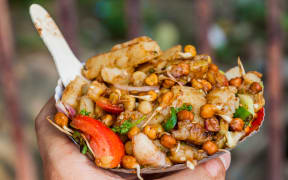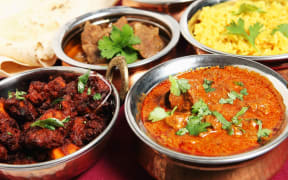
Paan has fascinated South Asians for centuries. Photo: Adobe Stock
A specialty Indian digestive made from betel leaves is experiencing a surge in popularity nationwide.
Paan, which is made from betel nut leaf and consumed with slaked lime, rose petal jam and mouth fresheners such as cardamom and cloves, has fascinated South Asians for centuries.
What historically started out as an after-dinner treat has gradually evolved into a cultural symbol, often associated with hospitality, celebrations and religious ceremonies.
The meticulous production of paan has also become something of an art form, with variations spanning regions and communities across the subcontinent.
Now, a growing collection of small family-oriented businesses are bringing those flavours to households in New Zealand.
"I never thought that I'd be in this business but here we are," says Sreeman Myadam, owner of Paanwala, which launched in 2018.

Sreeman Myadam and his family are the driving force behind Paanwala. Photo: Supplied
Despite coming from a family that owned a paan business in India, Myadam was reluctant to start a similar venture in New Zealand upon arriving in 2008 due to the difficulty in sourcing ingredients, especially betel leaves.
"The main challenge was sourcing the leaves for the paan," the 43-year-old Hyderabad native says.
Unable to import betel leaves from India due to Ministry of Primary Industries restrictions, Myadam turned to Fijian exporters.
Before the Covid-19 pandemic, Myadam imported around 1500 leaves a week, although he brings in roughly half that amount these days.
"Right now, I supply about 30 restaurants and Indian grocery shops in Auckland," he says. "I (also) ship to Wellington, Hamilton and Christchurch."

The meticulous production of paan has become something of an art form, with variations spanning regions and communities across the subcontinent. Photo: Supplied
His business now offers five different kinds of paans; laddu paan, three varieties of chocolate-coated paan and fresh paan.
"My clientele is mostly South Asians but often I see Kiwis giving it a shot," he says.
Sixty-nine-year-old Rakesh Sharma started a paan business bearing his family name last year.
"We are three senior citizens who have joined hands and started this venture," Sharma says.
Similarly challenged by the scarcity of betel leaves, Sharma found an innovative solution.
"We decided to grow our own leaves because we couldn't import them from India due to the restrictions," he says.
He says most paan available in New Zealand are made using betel leaves imported from Fiji.
While acknowledging their uniqueness of betel leaves from the Pacific region, he says they taste very different from their Indian counterparts.

Rakesh Sharma grows betel leaves in greenhouses to make paan in New Zealand. Photo: Supplied
Sharma now has multiple greenhouses with betel plants in Auckland and in Hamilton.
"Betel leaves have been grown in New Zealand for the past 30 years but not professionally, so we thought we should give it a try," he says.
Sharma says the greenhouses have heating systems to keep the plants warm in winter.
Currently Sharma's business offers five paan products in New Zealand, including a waffle paan and two types of mouth fresheners.
Looking ahead, Sharma aims to boost sales and says his production facility in South Auckland can churn out 1000 paan each day.
"It's a truly distinctive product that resonates with many members of the community," he says.





